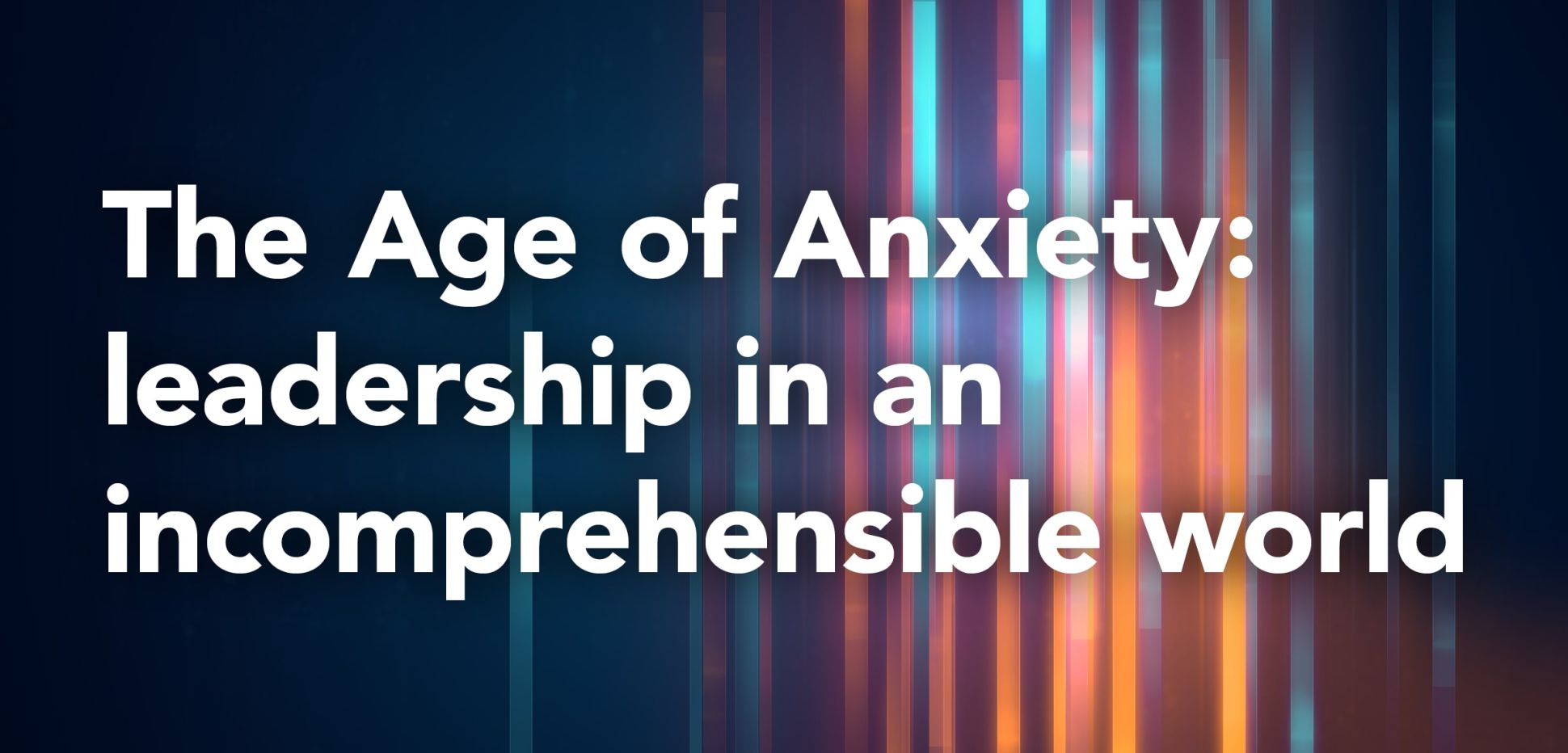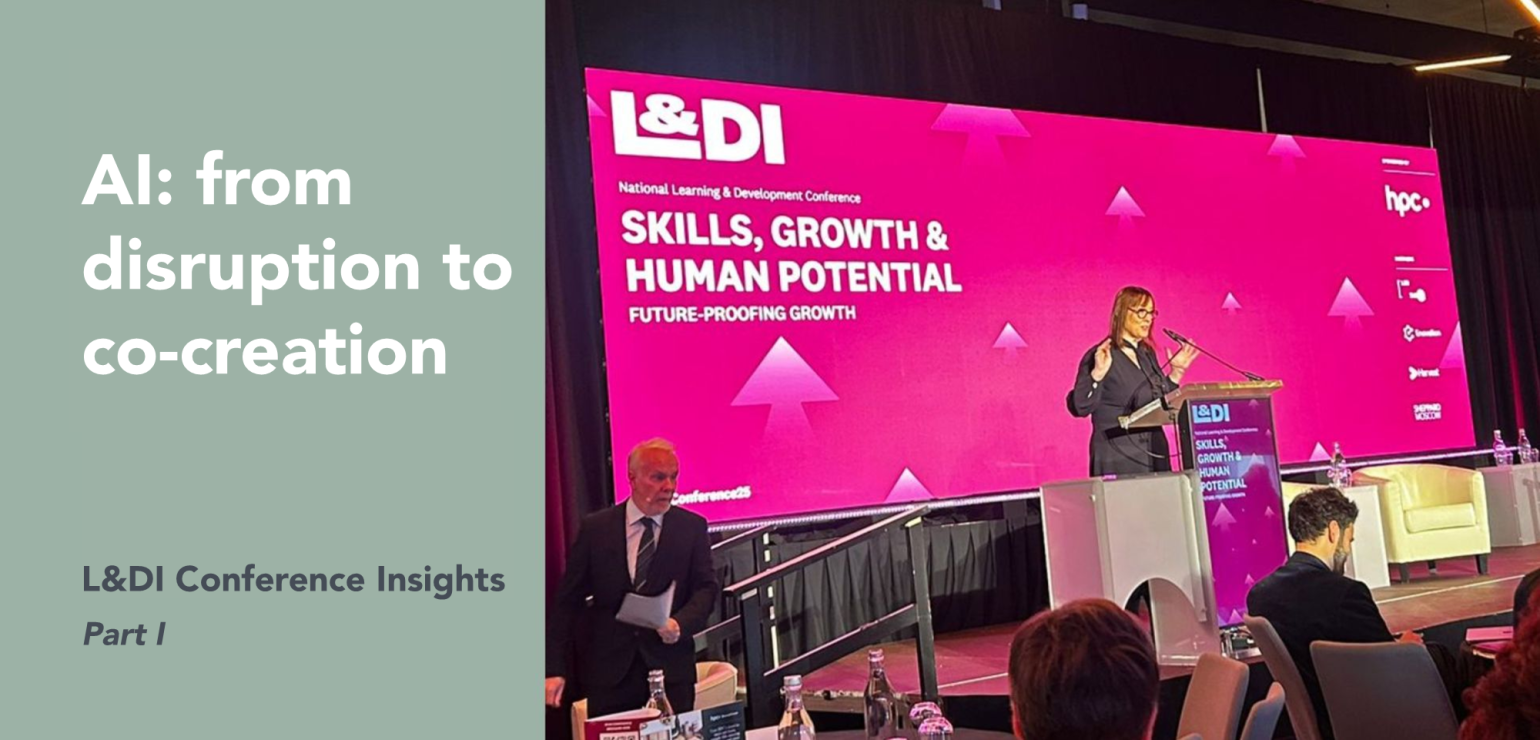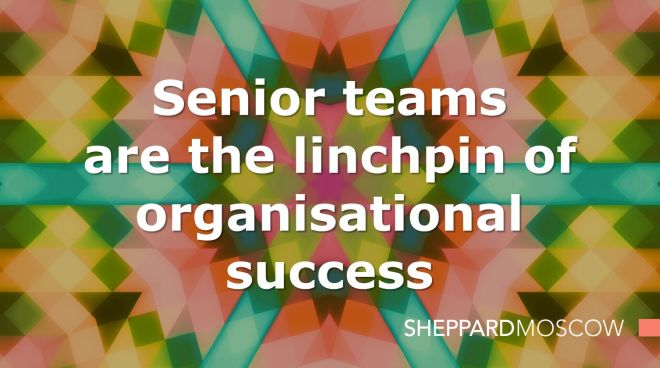Adapting leadership capabilities to a radically new environment

There is power and comfort in naming things, and who doesn’t love a handy acronym?
Though coined decades earlier, during the pandemic years ‘VUCA’ (Volatile, Unpredictable, Complex and Ambiguous) became a popular way to describe the environment in which we as individuals and organisations were operating. Having a word that encompassed the pressures of Covid, the chorus of scientific warnings about climate change and ecological breakdown, and the slow drumbeat of rising autocracy and erosion of democratic norms, helped provide a framework for thinking about leadership and strategy.
2022 presented a raft of new challenges, from war in Ukraine to inflation. As our challenges evolve so too does our language. It’s not just VUCA now, it’s ‘BANI’: Brittle, Anxious, Non-linear and Incomprehensible. This is the new name offered by author and futurist Jamais Cascio to describe this new environment, and it holds significant implications for senior leaders.
Brittle, Anxious, Non-linear, and Incomprehensible?!
Following Cascio, I’d summarize BANI as follows:
Brittle describes the ease and suddenness with which something that may appear solid can shatter. Take for example the Suez Canal incident in March 2021 when a massive container ship blocked the trade route. The knock-on effects to so many industries were profound, and this was only the first of a snow-balling breakdown of supply chains since then.
Anxious describes the prevailing mood. Anxiety is fueled by uncertainty and the fear that any decision or move we make could backfire and deliver more stress. In organisational life, anxiety can lead to knee-jerk decision-making at one extreme, or at the other, a tendency to delay in a passive attempt to await more clarity (which fails to arrive).
Non-linear describes the disconnect between cause and effect and the profound difficulty of discerning patterns in all the complexity. Cascio says: “Non-linearity is ubiquitous in biological systems. The growth and collapse of populations, the effectiveness of vaccination, swarm behaviour, and the spread of pandemics — all of these have a strongly non-linear aspect.”
Incomprehensible describes “the end state of information overload”. No matter how much data we have, or how hard we think about it, we cannot quite make sense of events and decisions that seem illogical or senseless. The scope for entrenched and polarised beliefs is obvious and counterproductive.
Leadership in a BANI context is not straight-forward. It requires letting go of certainties, tuning into others, taking risks, shedding preconceived hypotheses and fostering the conditions for people to be at their best.
In confronting the BANI environment we are tempted to propose FEEL(ing) as the leadership antidote!
It’s probably an acronym too far, but FEEL(ing) – Flexibility, Empathy, Experimentation, and Learning – does capture a sense of the way forward:
Flexibility to address brittleness: Leaders who have the emotional flexibility to adapt their responses when things suddenly shatter provide a source of calm which eases anxiety and creates space in the organisation for the kinds of conversations needed to face the brutal facts and to rapidly plot the next moves.
Empathy to address anxiety: Leaders who can be curious about and empathise with how their people (and all stakeholders) are feeling in response to the challenges of their work and lives can engage good followership. Too many leaders are pushing through and driving harder which is only increasing burnout risks and fueling what many commentators refer to as ‘the Great Resignation’.
Experimentation to address non-linearity: As Cascio explains: “In a non-linear world, rigid plans tend to be a burden on business. Companies that don’t innovate and rely only on “proven” methods of doing things often find themselves behind the competition and can’t adapt quickly enough to changes in their environment.” Thus, when the levels of complexity ratchet up, a culture in which it is safe to experiment and learn will be better able to respond. And that requires leaders who can create the necessary conditions of psychological safety, clear vision and ability to articulate the guiding principles and boundary conditions.
Learning to address the incomprehensible: In an environment of information overload it’s crucial to persevere in engaging with news and information, and to maintain the curiosity that drives empathetic and multi-faceted responses to complex information. A strong foundation of understanding and a strategic approach to learning underpins a robust response to a BANI environment.
This is not an easy or comfortable environment for leaders. What works in simple and complicated contexts will not be suited to complex and chaotic contexts. Thus, the leadership development challenge is broader than learning new skills to deploy as you deal with reducing levels of order and predictability. Rather it requires growing one’s capacity – intellectually, practically, and emotionally – to be with complexity, and to learn to engage differently with it.
To find out how Sheppard Moscow’s enduring and future-fit leadership development practice helps our clients to address this challenge, contact us and let’s start the conversation.
References
Jamais Cascio article, April 2020 - https://medium.com/@cascio/facing-the-age-of-chaos-b00687b1f51d
Bill George article, Feb 2017 - https://www.forbes.com/sites/hbsworkingknowledge/2017/02/17/vuca-2-0-a-strategy-for-steady-leadership-in-an-unsteady-world/?sh=454dadb513d8
A leader’s framework for decision-making, Snowden D, and Boone, M – HBR Nov 2007

 Andrea Cusack
Andrea Cusack 
 Aoife Keane
Aoife Keane 
